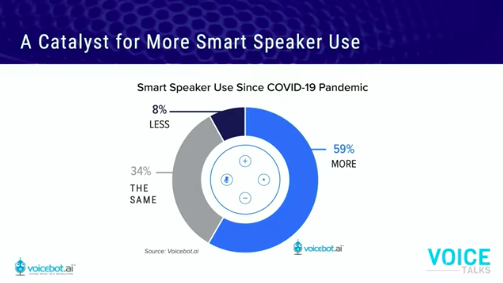This blog is part of a collection that Impression’s Algorithm Committee publishes on a monthly basis. At the beginning of each month, we cover all significant Google updates and changes in the search industry.
The traffic light imagery signifies the importance of each update. Red meaning “stop and take action”, orange meaning “reflect on how this might affect your day-to-day marketing” and green signifying that it is something to be aware of.
Diversity, Equality and Inclusion in Digital Marketing

The global Black Lives Matter protests that took place in June reminded us all about the uncomfortable truth of the lack of diversity in the digital marketing industry. Now that the hashtags and social media posts have dwindled, it is more important than ever to keep the movement going and actively make the changes that we want to see in our industry.
Luke Davis, Founder of Pandog Media and SEO Executive at Adzooma, has written an insightful piece on what it is like being Black in digital marketing. The article includes insights from Partner & COO of Crunchy Links, Jamar Ramos; blogger and photographer, Trevor Price; and Founder & Digital PR Specialist of Handnote PR, Gabrielle Ashanti. Davis shared on Twitter that more insights from Black digital marketers will be added in the coming days, so we would recommend following this piece for more information on what we can do to diversify the industry.
For further information, Davis also recommends watching the replay of Search Engine Land’s live session where they addressed diversity, recruitment and retention in agencies and marketing teams.
Google Algorithm and Ranking Updates
 At the very beginning of June, Search Engine Roundtable reported early signs and reports of traffic fluctuations and volatility in the US SERPs.
At the very beginning of June, Search Engine Roundtable reported early signs and reports of traffic fluctuations and volatility in the US SERPs.
Chatter within the industry throughout June as various industries were seeing large ranking fluctuations, and in some cases, pages completely disappearing from the SERPs. For reference, these were mainly reported on; June 10th, 19th, 22nd and 23rd.
When reviewing the SERP volatility within the UK throughout June in SEMrush Sensor, we can see the highest amount of uncertainty on June 23rd. It was reported that there were signs of a partial rollback of the May Core Update. So, no formal core algorithm updates were announced by Google, but we definitely saw a hectic month for fluctuations within the SERPs.

What does this mean for digital marketers?
- We’d recommend bearing this in mind when reporting on June’s performance, especially around the dates outlined above
- Review your keyword traffic tools, Google Analytics and Google Search Console for any negative impact this may have caused
- The fluctuations seemed to have stabilised now, but this is something that we’ll continue to monitor as we move in July.
Voice Search Usage in 2020

Towards the end of June, Perficient Digital carried out their yearly study with 1,000 people around voice search usage. They concluded that within their sample size, mobile phones were the most common devices for using voice commands, as opposed to their voice assistants and are more likely to use it when they are in environments where they’re alone.

See the full voice usage study
In Voicebot.ai’s most recent study around COVID-19’s impact on smart speaker use, they have noted that the order of use case frequency has not changed, as reinforced in Perficient’s study. However, The frequency of smart speaker usage throughout the past couple of months has risen significantly, discussed by Voicebot.ai’s Founder and CEO, Bret Kinsella in Google’s Voice Talks podcast.

What does this mean for digital marketers?
- Although voice search adoption and usage was claimed to dramatically alter the way all users will change the way we search by 2020, this was taken out of context by Baidu’s former Chief Data Scientist, when discussing predictions of image and speech within China
- Fresh and accurate data from reputable voice-based organisations are displaying that we are seeing slow and incremental gains within the voice sector
- As voice technology continues to learn and evolve, this provides a massive opportunity for third-party developers creating positive awareness and visibility for organisations across the globe
Free retail listings in Google Search

Google recently announced that product results on the Google Shopping tab in the U.S will predominantly consist of free listings. They have reported that the change has seen a significant increase in clicks and impressions for merchants. This means that users are finding more of the relevant products they are looking for. The fundamental shift to free listings in the US has meant that small and medium-sized businesses can benefit.

What does this mean for digital marketers?
- Free shopping listings on Google Search will appear in the product knowledge panel starting this summer in the U.S
- They will first appear on mobile then rolled out to desktop
- Whilst we wait for this to be rolled out in the UK, it is now time for SEO and PPC colleagues to collaborate, share data and knowledge on how this imminent change can benefit your clients or businesses
Bing updates its Webmaster Guidelines

At the end of June, Bing significantly updated its Bing Webmaster Guidelines. The update covered the below topics:
- How Bing finds and indexes your site
- How to help Bing understand your pages
- How Bing ranks your content
- Examples of SEO practices that are abused and things to avoid
What does this mean for digital marketers?
- The guidelines include updated information on the updates that Bing has made over the years, including
- How Bing ranks web pages and handles search spam
- Support of rel=”sponsored” and rel=”ugc”
- How Bing indexes Javascript
- Search engine guidelines such as Bing are important to understand how search engines crawl, index and rank your content
- It is vital to read these guidelines to understand how a search engine works, prior to even considering SEO. This will also ensure you are not making mistakes that lead to yours or your client’s sites being penalised by search engines.
Google My Business updates

With SMEs particularly affected by the continuing lockdown, Google has added new features to Google My Business (GMB) to help them provide the most up-to-date information online.
For instance, businesses are now able to mark themselves as temporarily closed if they have been forced to pause their operations in the short-term. This is a helpful feature because it allows the GMB profile to still be found in the search results, while marking the business as ‘Closed’ would result in the profile dropping out entirely.

What does this mean for digital marketers?
- Google has introduced new attributes to aid businesses in providing the most relevant information about their operations.
- Food businesses like restaurants and cafes can now specify whether they offer ‘Dine in’, ‘Takeaway’ or ‘Delivery’, which is a feature that will become increasingly useful as businesses come out of the lockdown period
- Google also announced the addition of ‘More hours’ to GMB profiles.
- In addition to the standard working hours of business, GMB profiles can now display different hours for certain services
- For instance, a restaurant can show that they are open between 10am-10pm, but that they only offer delivery between 6pm-10pm
Guest Posting Debate

Prominent Google spokesperson John Mueller reignited a debate last month about the value of guest posting. In a Google Webmaster Hangout, Mueller advised webmasters to nofollow all guest blog posts links, regardless of the quality of the content and how authoritative the publisher website is.
Mueller reiterated his views in a tweet, stating that “…if you’re providing the content/the links, then those links shouldn’t be passing signals & should have the rel-sponsored / rel-nofollow attached. It’s fine to see it as a way of reaching a broader audience.”
This has been Google’s view for several years now and echoes their desire to avoid webmasters manipulating rankings using backlinks built for the purpose of SEO. Google began penalising low quality guest blogging networks in 2017 and has for a long time stated that paid links will not be considered for rankings.
Many SEOs responded to Mueller’s views by arguing that guest posting should be included in link building strategies because it has been proven to benefit a site. Moreover, if high-quality guest articles benefit the user and the website hosting the content why should the authors not receive value in the form of a backlink?
What does this mean for digital marketers?
- Guest posting can be manipulated, but equally guest posting brings value to an SEO strategy if done to a high standard and published in authoritative publications
- This latest debate simply reiterates the importance of creating layered link building strategies for SEO, and that Google’s advice on certain topics should be taken with a pinch of salt
Looking for support in helping your business bounce back in lockdown? Get in touch with our team of digital specialists today for bespoke solutions to your business needs.





